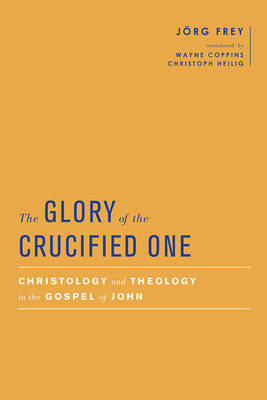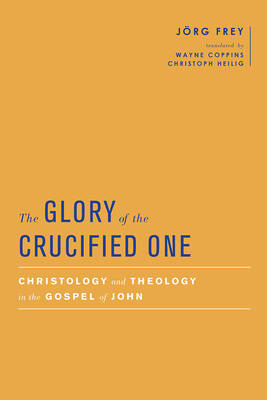
- Retrait gratuit dans votre magasin Club
- 7.000.000 titres dans notre catalogue
- Payer en toute sécurité
- Toujours un magasin près de chez vous
- Retrait gratuit dans votre magasin Club
- 7.000.0000 titres dans notre catalogue
- Payer en toute sécurité
- Toujours un magasin près de chez vous
Description
Jörg Frey has devoted decades of his scholarly career to exploring the rich landscape of John's Gospel. Frey chronicles the results of this work in The Glory of the Crucified One, demonstrating how the Gospel sits at the very heart of the New Testament witness.
Frey begins by locating his approach to the Gospel in relation to five classic ways John has been interpreted (Part 1) and by offering a summary of the results of his own interpretation, in which Frey argues that the Gospel forms the apex of New Testament theology (Part 5). In between, Frey first untangles several problems, such as questions of anti-Judaism, dualism, and docetism, that are characteristic of any discussion of John's Gospel (Part 2). From there, he focuses attention on the weighty events that, for John, form the crucial "hour" of Jesus--the death, resurrection, and glorification of Christ (Part 3). Frey then builds on this central theme to explore the Christology and theology of John (Part 4).
The Glory of the Crucified One underscores the central message Frey sees in the Gospel: "John's post-Easter memory (anamnesis) of the Jesus story aims at communicating that Jesus, who was crucified, has actually been glorified and is present in the realm of God, and in spite of his apparent absence from this world he is present in the community of believers through the Spirit."
For John, according to Frey, there is no concealment of the cruel reality of Jesus' death on the cross. The narrative of Jesus' trial and his crucifixion deliberately shapes its readers' perception of the truth of faith visualized in John's narration. In the end, readers should contemplate the "pierced," crucified one as the source of their life and their communion with God.
Spécifications
Parties prenantes
- Auteur(s) :
- Editeur:
Contenu
- Nombre de pages :
- 487
- Langue:
- Anglais
- Collection :
Caractéristiques
- EAN:
- 9781481309097
- Date de parution :
- 01-10-18
- Format:
- Livre relié
- Format numérique:
- Genaaid
- Dimensions :
- 201 mm x 242 mm
- Poids :
- 948 g

Les avis
Nous publions uniquement les avis qui respectent les conditions requises. Consultez nos conditions pour les avis.






